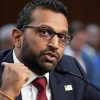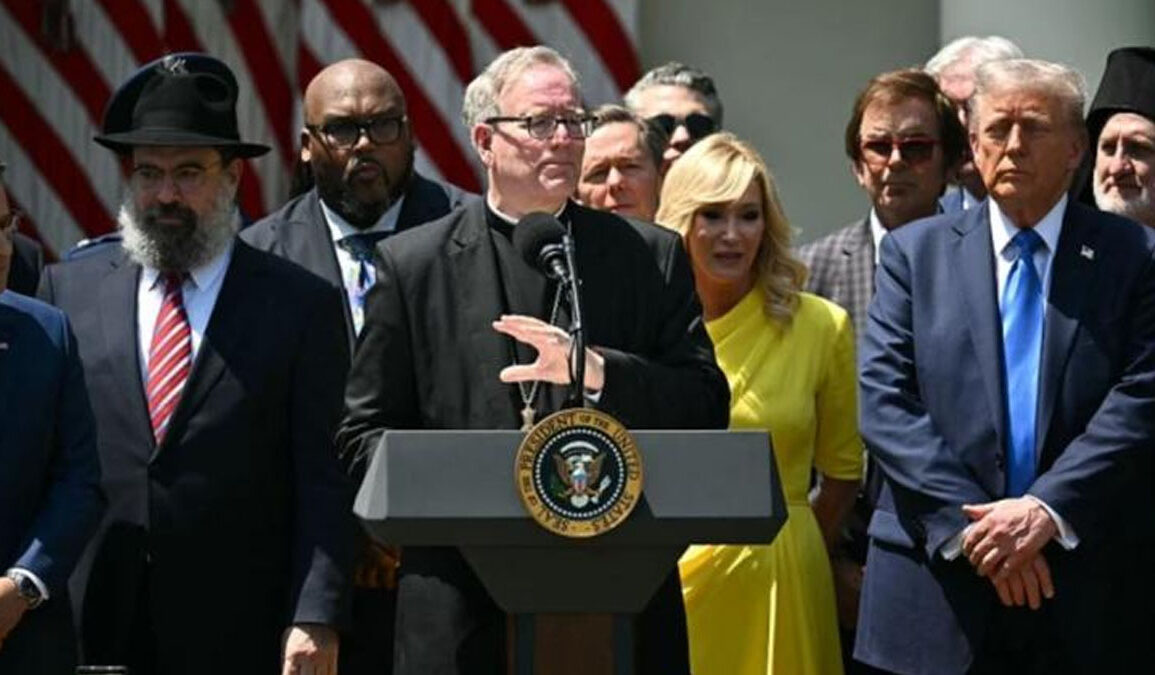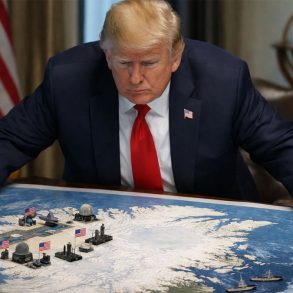A New Commission Rooted in Tradition
On May 1, 2025, during a National Day of Prayer ceremony at the White House Rose Garden, President Donald Trump signed an executive order establishing the Religious Liberty Commission. Trump described the new body as a critical step toward restoring the nation’s founding values and protecting religious expression across the country.
“We’re bringing religion back to our country,” Trump declared to a crowd of faith leaders and supporters. “It’s a big deal.” The commission, composed of religious leaders, legal experts, and public figures, is designed to investigate what the White House calls growing threats to religious freedom in the United States and recommend actions to defend and promote those freedoms.
The commission’s term runs until July 4, 2026, the 250th anniversary of the Declaration of Independence, unless extended by the president. Its primary task is to produce a report that outlines the historical foundation of religious liberty, its influence on American society, present-day threats, and strategies to preserve religious rights for future generations.
Leadership and Membership
President Trump appointed Texas Lieutenant Governor Dan Patrick as chairman of the commission. Patrick expressed his gratitude in a public statement: “We will carry out the president’s important mission to preserve and strengthen religious liberty in our country. I thank President Trump for his steadfast commitment to ensuring our nation returns to our founding principles of faith and religious liberty.”
Former Secretary of Housing and Urban Development Dr. Ben Carson was named vice chair. Other notable members include Cardinal Timothy Dolan of New York, evangelical pastor Franklin Graham, Rabbi Meir Soloveichik, Bishop Robert Barron of Minnesota, White House faith adviser Paula White, author and talk show host Eric Metaxas, and Dr. Phil McGraw. At the signing ceremony, Dr. Phil said, “Mr. President, I can’t tell you, first off, how proud I am to see religion coming back to the White House. God bless you.”
The commission will receive input from three advisory boards, also appointed by the president: an Advisory Board of Religious Leaders, an Advisory Board of Lay Leaders, and an Advisory Board of Legal Experts led by the Attorney General. These boards are meant to ensure the commission includes a wide range of perspectives from faith communities, legal scholars, and everyday Americans.
Objectives and Areas of Focus
According to the executive order, the commission is expected to examine a wide variety of issues that impact religious liberty. These include:
- The rights of religious leaders and houses of worship under the First Amendment
- Attacks on houses of worship across different faiths
- The potential denial of nonprofit status for faith-based organizations
- Conscience protections related to healthcare, including objections to vaccine mandates
- Parental rights in choosing religious education and directing their children’s upbringing
- Voluntary prayer and religious instruction in public schools
- Religious displays on government property
- The financial debanking of religious groups
- The rights of military chaplains, service members, employers, and students to express their faith
The executive order frames the commission as necessary to respond to what Trump described as “emerging threats” to the free exercise of religion. “Americans need to be reacquainted with our Nation’s superb experiment in religious freedom in order to preserve it against emerging threats,” the document reads.
Past Efforts and Historical Context
Trump’s action builds on previous executive branch efforts to promote religious liberty. In 2017, during his first term, Trump issued an executive order on promoting free speech and religious liberty. That led to an official memorandum from the Department of Justice under then-Attorney General Jeff Sessions, laying out legal protections for religious expression. Trump also created the White House Faith and Opportunity Initiative to coordinate with faith-based organizations.
The Religious Liberty Commission follows another recent initiative: the Task Force to Eradicate Anti-Christian Bias, established in February 2025. That task force held its first meeting in April, led by Attorney General Pam Bondi. Cabinet members discussed specific examples of what they called discrimination against Christians during the Biden administration.
Historically, presidential action on religious matters has taken various forms. Franklin D. Roosevelt expanded the role of military chaplains during World War II, and Bill Clinton signed legislation establishing the U.S. Commission on International Religious Freedom in 1998. George W. Bush formed the Office of Faith-Based and Neighborhood Partnerships in 2001 to collaborate with community organizations, and Barack Obama broadened that office’s reach in 2009 to include secular groups.
Trump’s latest initiative, however, focuses primarily on domestic concerns and is closely aligned with conservative Christian priorities.
Strong Support from Religious Conservatives
Among white evangelicals, Trump’s actions continue to receive strong backing. A recent Pew Research Center survey found that nearly three-quarters of white evangelicals approved of Trump’s job performance during his first 100 days in office. Polling by the Public Religion Research Institute also found that about two-thirds of white evangelicals believe Christians face discrimination in the United States.
The executive order emphasizes the role of religion in America’s founding, stating that early settlers fled persecution in Europe to freely practice their faith. It also warns that some modern policies are trying to remove religion entirely from public life or treat religious beliefs as incompatible with civil rights.
Supporters of the commission say it is necessary to defend people of faith from government overreach. Bishop Barron stated on social media, “Freedom of religion in our country has been a central concern of the United States Conference of Catholic Bishops for decades, and I see my task as bringing the perspective of Catholic social teaching to bear as the commission endeavors to shape public policy in this matter.”
Sharp Criticism from Civil Liberties and Faith Groups
Critics of the commission see a much different purpose. The Reverend Shannon Fleck, executive director of Faithful America, called the initiative an attempt to “tear down the wall between church and state.” She warned, “This new commission will do more to increase bullying in schools, workplace conflict, and religious discrimination than it will to protect our constitutional rights or our churches.”
Bishop Dwayne Royster of Faith in Action, a progressive network of religious organizers, said, “Religious freedom is not theirs to wield as a weapon of fear or domination.”
Legal experts have raised concerns about the commission’s constitutionality. Critics say that many of its proposed activities fail the three-part Lemon Test established in Lemon v. Kurtzman (1971), which is used to evaluate whether a government action improperly promotes religion. To pass the test, the government action must have a secular purpose, not advance or inhibit religion, and avoid excessive entanglement with religion. Critics argue the commission’s emphasis on prayer in public schools, vaccine exemptions, and public displays of Christian imagery does not meet those standards.
Others argue that the initiative favors evangelical Christianity over other religions. Trump has been accused of omitting other faith traditions in official proclamations and of promoting a version of American identity centered on white Christian nationalism. Critics also cite past incidents, such as the arrest of Rev. Dr. William Barber II for praying in the Capitol Rotunda, as evidence of selective enforcement based on political and religious affiliation.
A National Debate over Faith and Freedom
The creation of the Religious Liberty Commission has intensified a national debate over how religious freedom should be defined and protected in a diverse society. Supporters see it as a way to reassert foundational values. Critics view it as a political tool that could marginalize non-Christian faiths and nonbelievers.
While Trump has framed the effort as a defense of the First Amendment, others warn that it may erode the Establishment Clause, which prevents the government from favoring one religion over another. In contrast, President Biden’s 2025 Religious Freedom Day proclamation emphasized equal protection for all faiths and for those with no religious affiliation, stating, “Whether you worship in a church, synagogue, temple, or mosque, the Constitution of the United States protects every American’s right to practice their faith freely—or to practice no faith at all.”
As the commission begins its work, it remains to be seen whether it will promote a broad vision of religious liberty for all Americans or reinforce a narrower, partisan agenda. The future of religious freedom in the United States may depend on how this commission carries out its mandate—and who is included in the vision it seeks to defend.
NP Editor: This is perhaps an over reaction, but given the assault on religious freedoms during the Biden Administration, it is to be expected.








